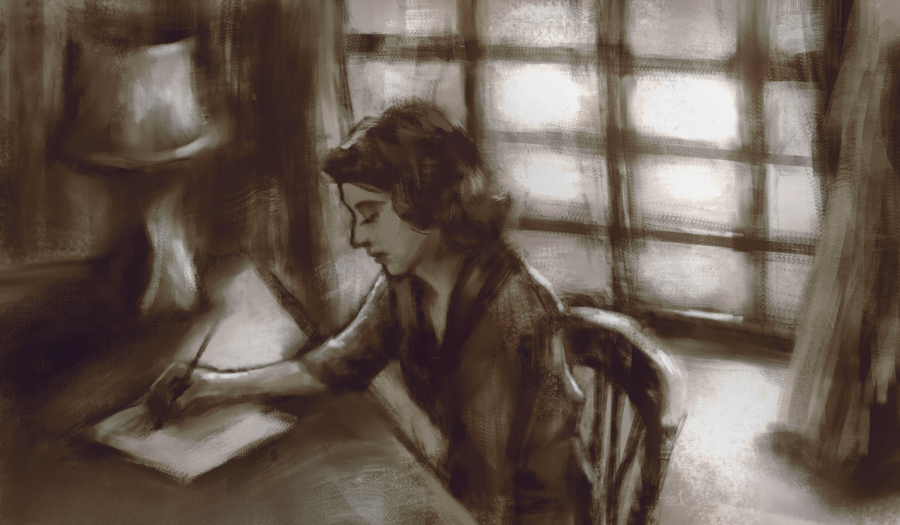COVID-19 rendered school too unsafe. So I tuned in virtually. But this week even our screens went black as Texas battled a crisis. My home was my last defense. What is my insurance now?
First, the streets became lifeless. And then, so did our home. I thought my four walls could protect me from the worst. I was wrong. We witnessed nature’s fury as Texas’ entire grid was rendered useless.
My house had been my insurance policy, but starting late Sunday, it became anything but that. My power was out for 36 hours, and I was still considered lucky. My family was cold. We burned old SAT books for warmth. But at least our water hadn’t stopped running.
This past week, we saw firsthand what happens when we fail to invest. But our leaders knew the power of proper funding. Historically, the United Nations was one of our biggest gambles as a nation and as a world. Exactly 59 years ago, in February 1962, Operation Mongoose and related sanctions brought the world to the brink of another world war between the US and USSR. But financing the UN helped protect our progeny from worst-case scenarios.
To avoid short term costs, Texas refused to weatherize our power plants. But such protective measures would have been far from useless in Texas. Was investment in the UN futile? No. The body has ensured a better future for billions. Were the results instantaneously beneficial? No, but the UN’s foresight has helped combat global challenges before they become emergencies. Extreme weather and snow in Texas seemed like a distant dystopia.Yet now we are living this unforeseeable future with preventable consequences.
Nonrenewable energy accounted for at least two-thirds of all of the power lost in Texas. Instead of investing in the Keystone XL pipeline which would create a net of only 35 full-time jobs in a declining fossil fuel sector, we could replace these antiquated technologies by investing in cold-resistant wind turbines. Clean energy is already cheaper than oil and gas. It is time for our politicians to embrace these facts as they decide where to invest their energy infrastructure budgets because, during unprecedented snow storms, Texas’ energy infrastructure failed its people. With this investment, our grid will be safe from any future catastrophe of this nature. Maybe this investment in green energy could even ensure that such unexpected winters and other symptoms of the climate emergency never reach Texas again.
Many of our nation’s biggest political figures are concerned about short-term gain. But what about long-term loss? It is time to urge our lawmakers to take actions that insure us in the worst-case. Some government officials find it hard to empathize with us as they easily circumvent the calamities we endure. Many can afford lavish expenses as they jet off to Cancún on short notice to avoid dark, cold nights. But it is time for our leaders to enact policies that we can rely on as insurance.
This is not only true for the crisis that Texas is currently facing, but many other issues that plague our country. In combating COVID-19, the United States failed its people. Because the country lacked universal health care, many Americans were late to getting much needed treatment. Our nation’s leaders have repeatedly failed to provide any semblance of security, often citing unnecessary costs as why they cannot “make [insurance] happen” in the face of calamity.
If the US had spurned the UN as the Texan government did safety measures, the UN would have been incapable of addressing the Cuban Missile Crisis of 1962: when the USSR had authorized the launching of nuclear weapons from Cuba. With the US in close proximity, this aggressive rise in tension spelled trouble and potential for another world war. But with the proper funding and investment, the UN was able to encourage a diplomatic resolution between the two nuclear-armed superpowers. The enemy nations’ decision to bolster a future-driven organization over their nuclear arsenals gave the UN this leverage. Without the funding dedicated to the body decades earlier, the UN would likely have been useless in the event of a crisis like this.
In my own life, I enjoy investing in short-term pleasures like traveling. But most of the expenditures under my name go towards my education at UC San Diego — my insurance policy. It is a guarantee of my expertise and my capabilities, even if I am unemployed once I graduate.
Like my college degree, weatherized facilities are not a panacea. But if a majority of our governmental spending is dedicated to securing the future, rather than resolving minor aesthetic concerns of the present, at least we have some assurance that our worst nightmares won’t come true.
Art by Angela Liang for the UC San Diego Guardian.
















